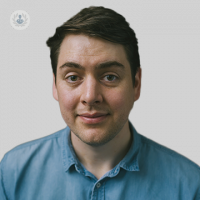Young people and depression: Exploring transcranial magnetic stimulation (TMS)
Escrito por:For young people experiencing depression, transcranial magnetic stimulation (TMS) is a safe and effective treatment option worth considering. We invited esteemed clinical psychologist Dr Justin Stephenson to tell us more about how TMS can help young people aged 14 to 17 suffering from adolescent depression.

Is TMS safe for young people?
TMS has been extensively studied in young individuals, with a notable review by Krishnan in 2015, which analysed 35 studies involving 322 participants aged 6 to 17. The verdict: TMS is generally safe for this age group when administered following safety guidelines. Seizures were rare, occurring in only 0.62 per cent of cases, and typically linked to specific factors like alcohol consumption or certain medications.
Recent reviews by Allen et al in 2017 and Zewdie et al in 2020 continued to affirm the safety of repetitive TMS (rTMS) in adolescents. Notably, a study set for publication in 2022 by Croarkin et al found no significant side effects in those aged 12 to 21. However, it's crucial to avoid alcohol abuse or certain medications, as they can increase the risk of seizures when combined with TMS.
Is TMS effective for adolescent depression?
The evidence suggests that TMS can be an effective treatment option for adolescents struggling with treatment-resistant depression. Donaldson's 2014 systematic review of seven studies concluded that rTMS is both effective and well-tolerated in adolescents with such symptoms.
A 2016 study by Wall further supports this notion. Ten adolescents with severe depression underwent up to 30 rTMS sessions, and 60 per cent experienced significant improvements that persisted for six months. Six of them even reached mild depression levels, two bordered on it, and one achieved full remission.
A randomised controlled study expected to be published in 2022 by Croarkin et al reports an overall remission rate of about 30 per cent for young people with treatment-resistant depression. Clinical improvement was seen in 42 per cent, though it's important to note that sham TMS showed similar results. This aspect needs further investigation.
How does TMS work?
TMS operates by delivering powerful magnetic pulses that stimulate brain cells. These pulses, painlessly administered through the scalp, target specific brain areas, particularly the frontal cortex. This stimulation enhances connectivity between brain cells and encourages the release of crucial chemical messengers. Treatment typically involves 15 to 30 sessions over several weeks.
Current NICE Guidelines for young people with depression
Before considering TMS, it's important to follow the National Institute for Health and Care Excellence (NICE) guidelines. These recommend individual cognitive behavioural therapy (CBT) as the initial treatment, with the addition of Fluoxetine and psychological therapy for moderate to severe depression if needed. If psychological therapy alone isn't effective, further options should be explored, considering the patient's unique circumstances.
For young people aged 14 to 17 struggling with mild or moderate depression, who have exhausted standard treatment options outlined in the NICE Guidelines or have chosen not to pursue them, TMS can be a promising alternative. It has demonstrated safety and tolerability in numerous studies for this age group.
However, every case is unique, and decisions should be made in consultation with healthcare professionals who can evaluate your individual circumstances. TMS offers hope and promise on the horizon of depression treatment, providing a potential pathway to brighter days for young adults facing this challenge.
Smart TMS is one of the UK’s leading providers of transcranial magnetic stimulation treatment for a range of conditions, with clinic locations in London, Bristol, Edinburgh, Manchester, Birmingham, Norwich and Southampton.
If you think you or a loved one could benefit from treatment with TMS and wish to schedule a consultation, visit Dr Stephenson’s Top Doctors profile today.


